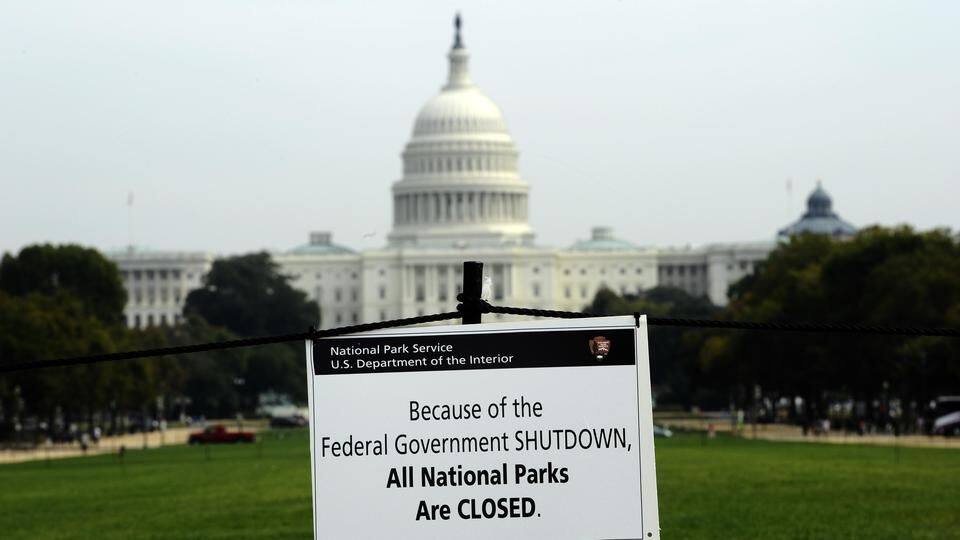
US shuts down for the second time in three weeks
What's the story
The US government shut down once again this morning after a single senator blocked a crucial budget deal. Republican Sen. Rand Paul of Kentucky protested the deal's clauses that reportedly allowed for huge spending increases. Paul demanded strict caps on such spending. But trouble was already brewing in the House over complaints that the deal didn't offer protection for the thousands of Dreamers.
Shutdown
The last shutdown was in January over a funding bill
On January 20, the US shut down after the Senate couldn't pass a bill to keep the government running. The Democrats' prime demand was protection from deportation for 7,00,000 Dreamers who arrived in US as children, and permanent extension for the children's health insurance program. The shutdown was called off after Mitch McConnell promised an immigration debate and a temporary funding measure was passed.
Problems
What were the issues with the latest bill?
That measure expired yesterday midnight, but the latest bill, which would have funded the government for six weeks, failed to pass. The deal raises limits on domestic and military spending by $300mn for two years, lifts federal debt caps till March'19, and issues $90bn in disaster relief for last year's hurricanes and wildfires. The Democrats are meanwhile opposing lack of measures for Dreamers.
Information
Increase in funding for domestic programs a win for Democrats
However, the Democrats secured some important wins in the pact, notably a steep increase in funding for domestic programs. Voting against those included in the bill to demand immigrants' protection under DACA carried its own risks and could have backfired, apart from prolonging the shutdown.
Status
Paul's action draws ire, but senator adamant
Sen. Paul's holdup of the bill didn't make fans. "It's irresponsible," said Republican Sen. John Cornyn, adding he's "just trying to make a point but doesn't really care who he inconveniences." "It's just further example of the dysfunction of this place," said Republican Sen. Ron Johnson. But Paul was clear: "I'm here to put people on the spot. I want people to feel uncomfortable."
Twitter Post
'Delaying votes isn't a profile in courage, it's a cleanup'
Rand Paul voted for a tax bill that blew a $1.5 trillion hole in the budget. Now he is shutting the government down for three hours because of the debt. The chance to demonstrate fiscal discipline was on the tax vote. Delaying a vote isn’t a profile in courage, it’s a cleanup.
— Brian Schatz (@brianschatz) February 9, 2018
Shutdown
So what happens under the 'shutdown' now?
Until the bill passes, the government will remain without funds to keep running and will "shut down." Only essential services like national security, air traffic control, select medical services, prisons, electricity supply etc would keep running. Though past shutdowns haven't hit the economy much, financial markets may be rattled.
History
A history of US government shutdowns
There have been 19 shutdowns since 1976, when the Congressional Budget and Impoundment Control Act was introduced to establish the budget process. However, only three are considered significant, two during the Bill Clinton regime and one during Obama; most occurred over a weekend. The longest was in December'95, when it lasted for 21 days. In the last shutdown in September'13, it lasted for 16.